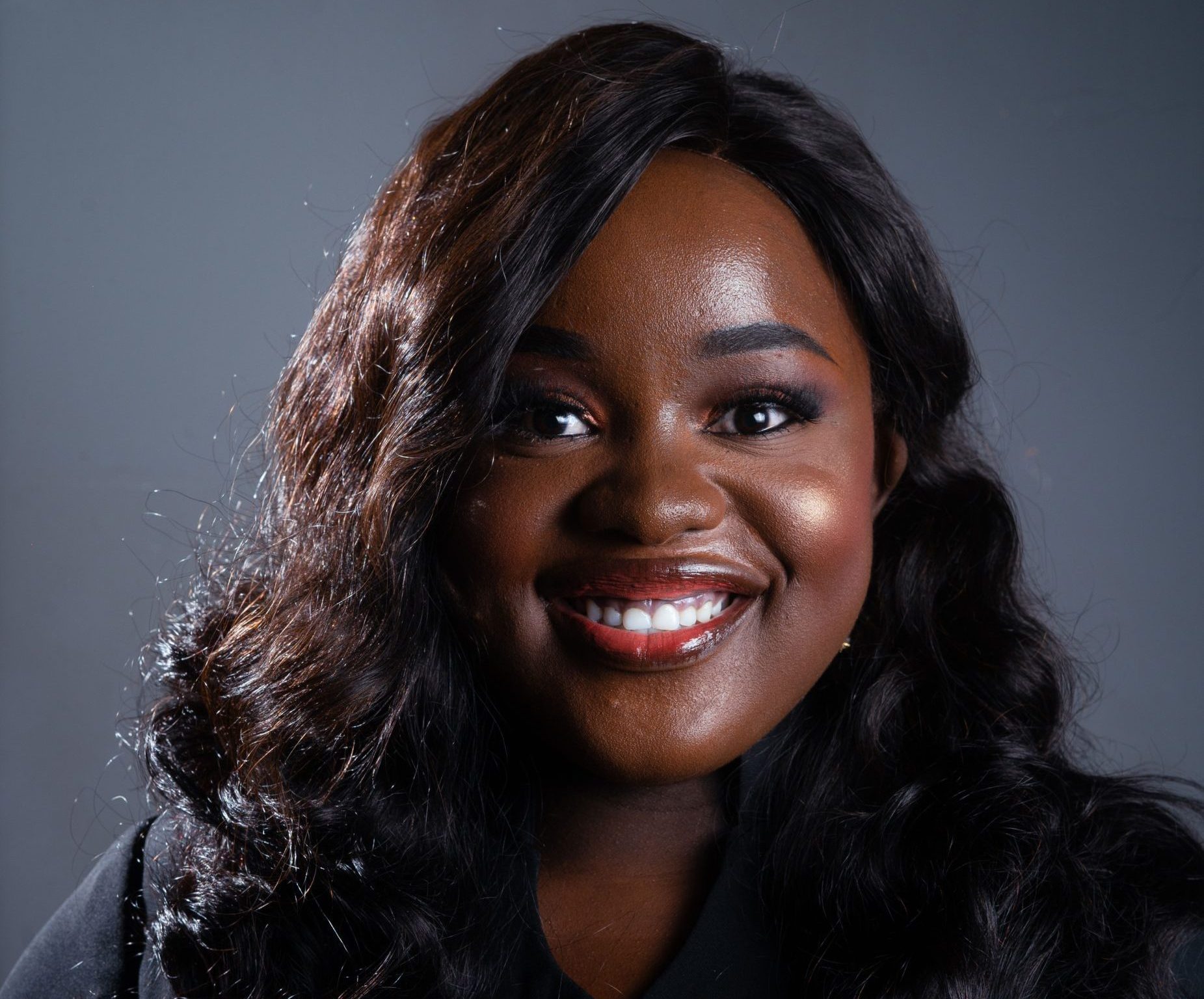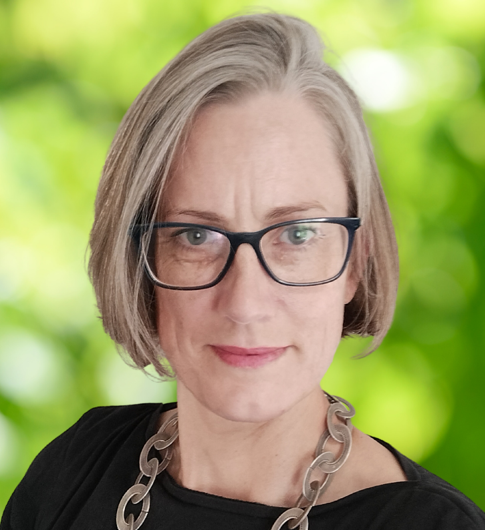In this week’s Comms Spotlight, Ashu Ma-Mbeng Success, Head of Corporate Communications at Olam Agri, Cameroon tells us her career story. She began her career as an educator, but certain circumstances pushed her to chart a new path in Corporate Communications. In her interview with us, she shares some inspiring highlights from her career journey and valuable advice for professionals looking to build careers in Development Communications.
How did you get started in the field of Communications?
Interestingly, I often say that Communications found me—and not the other way around. What began as a detour has evolved into a deeply fulfilling career path that has shaped my professional identity and purpose.
I initially started my career in the education sector, inspired by my mother, a dedicated teacher whose passion for nurturing young minds left a lasting impression on me. Teaching was my first love, and I pursued it with enthusiasm. However, a socio-political crisis in 2017 in my hometown of Buea (Southwest Region in Cameroon) disrupted the education system and posed significant risks to educators. Faced with uncertainty and a stagnant economy, I made the difficult decision to relocate to Douala (Economic Capital of Cameroon) in search of new opportunities.
Even in Douala, my passion for education remained strong. But life had other plans. I was introduced to Adeline Sede Kamga, the visionary CEO of FabAfriq Media Group—a leading Communications agency with a footprint in both Cameroon and the UK. That meeting was a turning point. Under her mentorship, I transitioned from the classroom to the world of corporate communications. It was a bold shift, but one that allowed me to channel my passion for storytelling, education, and impact into a new and dynamic space.
Since then, I’ve had the privilege of working with top-tier brands, helping shape their narratives, build reputational equity, and connect meaningfully with diverse audiences. Today, I serve as the Head of Corporate Communications at Olam Agri in Cameroon, one of the world’s leading agri-businesses. My journey has been anything but linear, but it has been rich with learning, resilience, and purpose.
What I’ve learned is that communication is not just about messaging—it’s about influence, empathy, and strategy. It’s about understanding people, shaping perceptions, and driving transformation. And I’m grateful every day that I get to do this work.
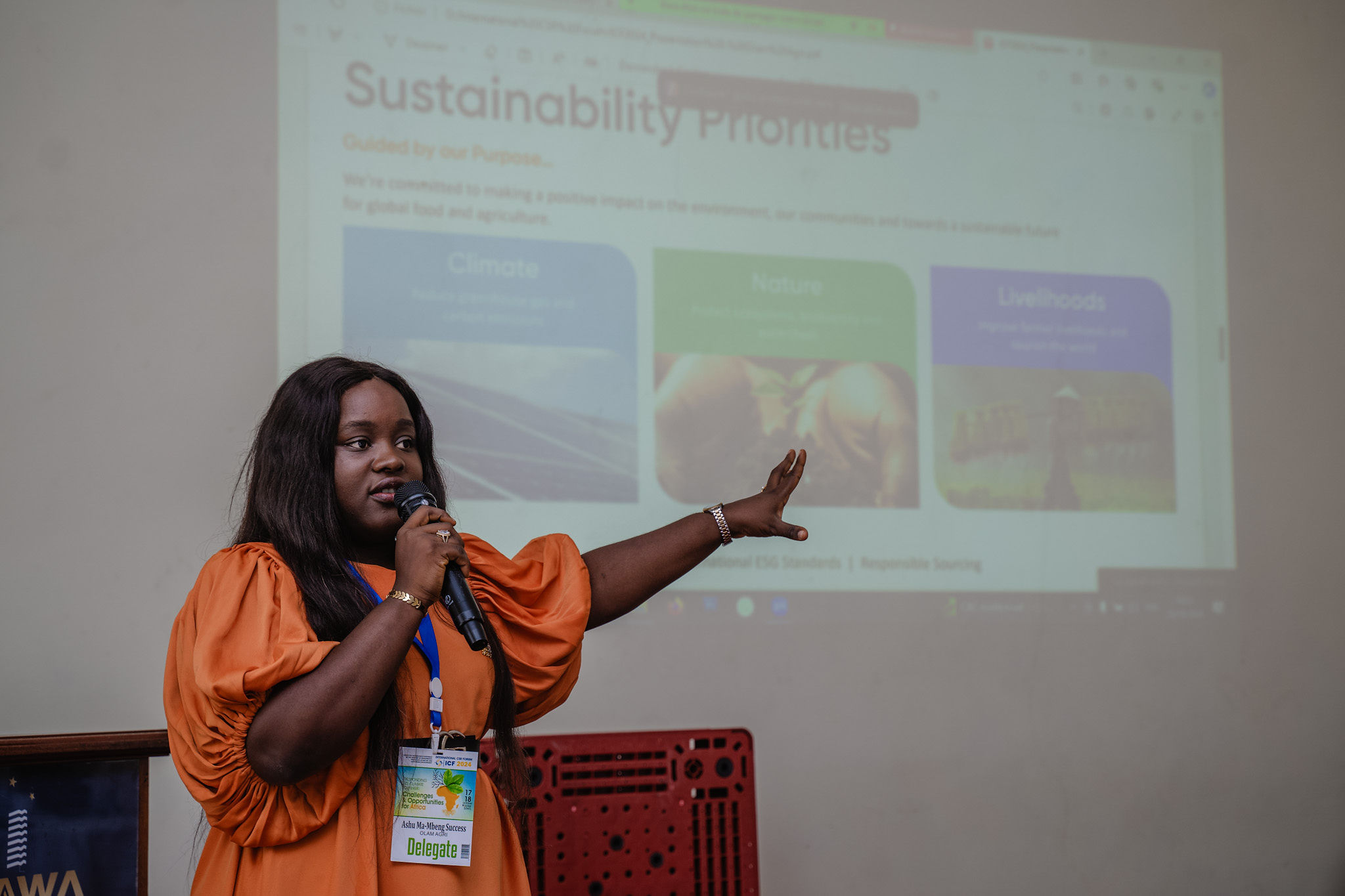
What does your role as the Head of Corporate Communications at Olam Agri entail?
As Head of Corporate Communications at Olam Agri Cameroon, my role is both strategic and operational, and no two days are ever quite the same. At its core, my responsibility is to bring Olam Agri’s global communications strategy to life within the Cameroonian context ensuring that our messaging, engagement, and brand presence are not only aligned with our corporate values but also resonate meaningfully with our local stakeholders.
Internally, I serve as a cultural architect. I lead initiatives that foster a strong, purpose-driven company culture, one where employees feel informed, inspired, and connected to our mission. This involves crafting and disseminating timely, relevant content across multiple internal platforms such as Workvivo, newsletters, and email campaigns. Whether it’s communicating a new business milestone, spotlighting employee achievements, or reinforcing our values, my goal is to ensure that every message contributes to a cohesive and engaged workforce.
Externally, I act as the voice and face of Olam Agri in Cameroon. I design and execute communications campaigns that enhance our visibility, build trust, and strengthen relationships with key stakeholders ranging from media and government to industry partners and the communities we serve. This includes everything from managing media relations and public affairs to overseeing brand storytelling and stakeholder engagement initiatives.
Ultimately, my role is about creating alignment between our people and our purpose, between our brand and our audiences, and between our local operations and our global identity. It’s a dynamic and deeply rewarding position that allows me to blend creativity with strategy, and storytelling with impact.
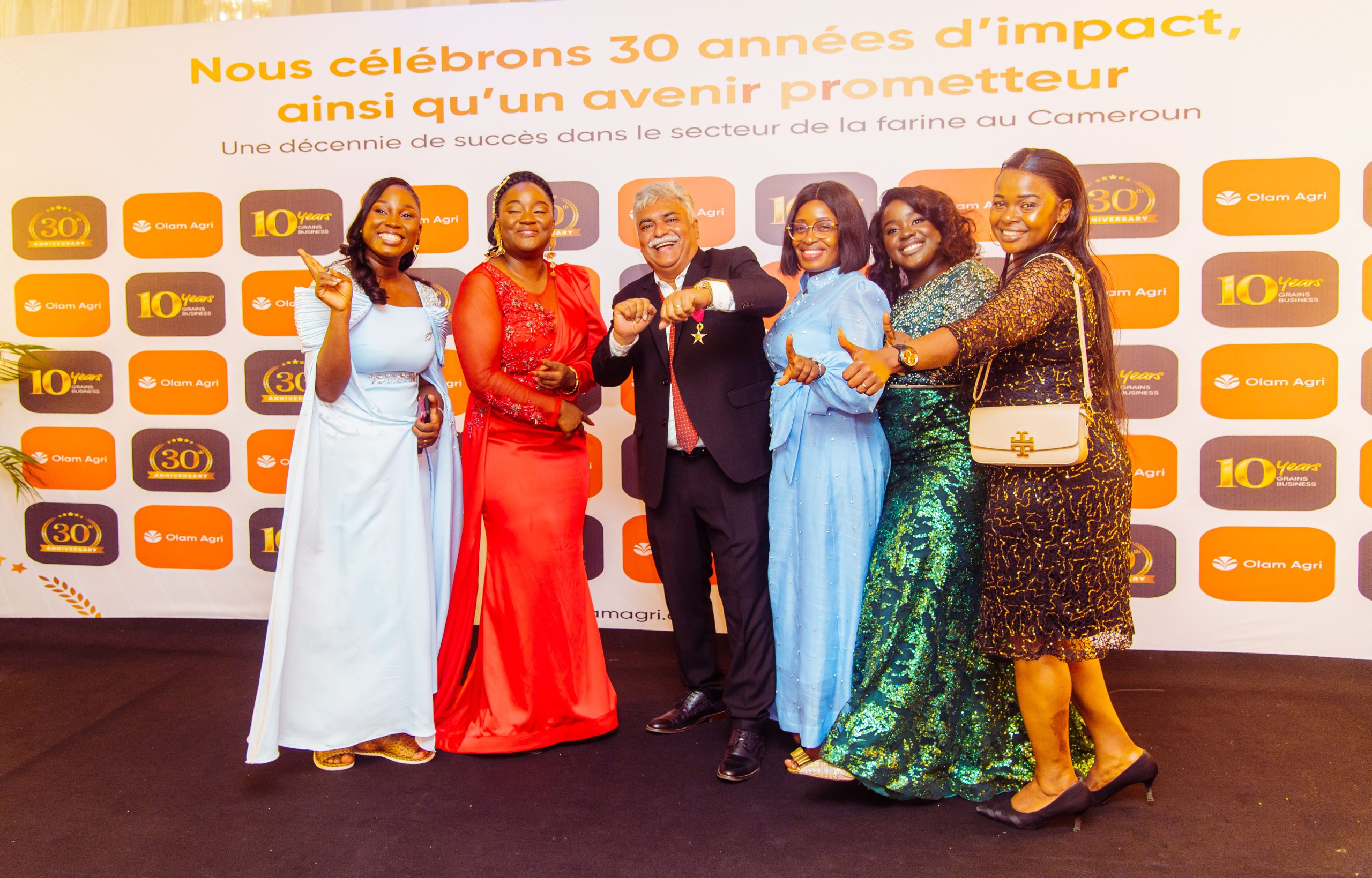
How does Communications directly or indirectly impact the food industry?
Communications plays a pivotal yet often underappreciated role in shaping the food industry. It is the connective tissue that links producers to consumers, brands to communities, and companies to their stakeholders. In a sector as essential and sensitive as food, where trust, transparency, and perception are everything, communications is not just a support function, it is a strategic driver of value.
Directly, communications influences consumer behavior and brand loyalty. Through storytelling, campaigns, and public engagement, we help consumers understand where their food comes from, how it’s produced, and why it matters. In a world increasingly concerned with food safety, nutrition, and sustainability, clear and credible communication builds confidence and drives informed choices.
Internally, communications fosters alignment and purpose. In a company like Olam Agri, where our operations span continents and cultures, internal communication ensures that every employee from mill operators to senior leaders understands our mission, values, and strategic priorities. This alignment is critical in maintaining operational excellence and a unified brand voice.
Indirectly, communications shapes policy, influences public discourse, and builds reputational capital. In the food industry, where regulatory environments are dynamic and public scrutiny is high, proactive stakeholder engagement and thought leadership can position a company as a responsible and forward-thinking actor. It also plays a key role in crisis management ensuring that when challenges arise, we respond with clarity, empathy, and accountability.
Ultimately, communications builds bridges between people and purpose, between brands and trust, and between innovation and impact. In the food industry, where every meal tells a story, communication ensures that the story is authentic, inclusive, and inspiring.
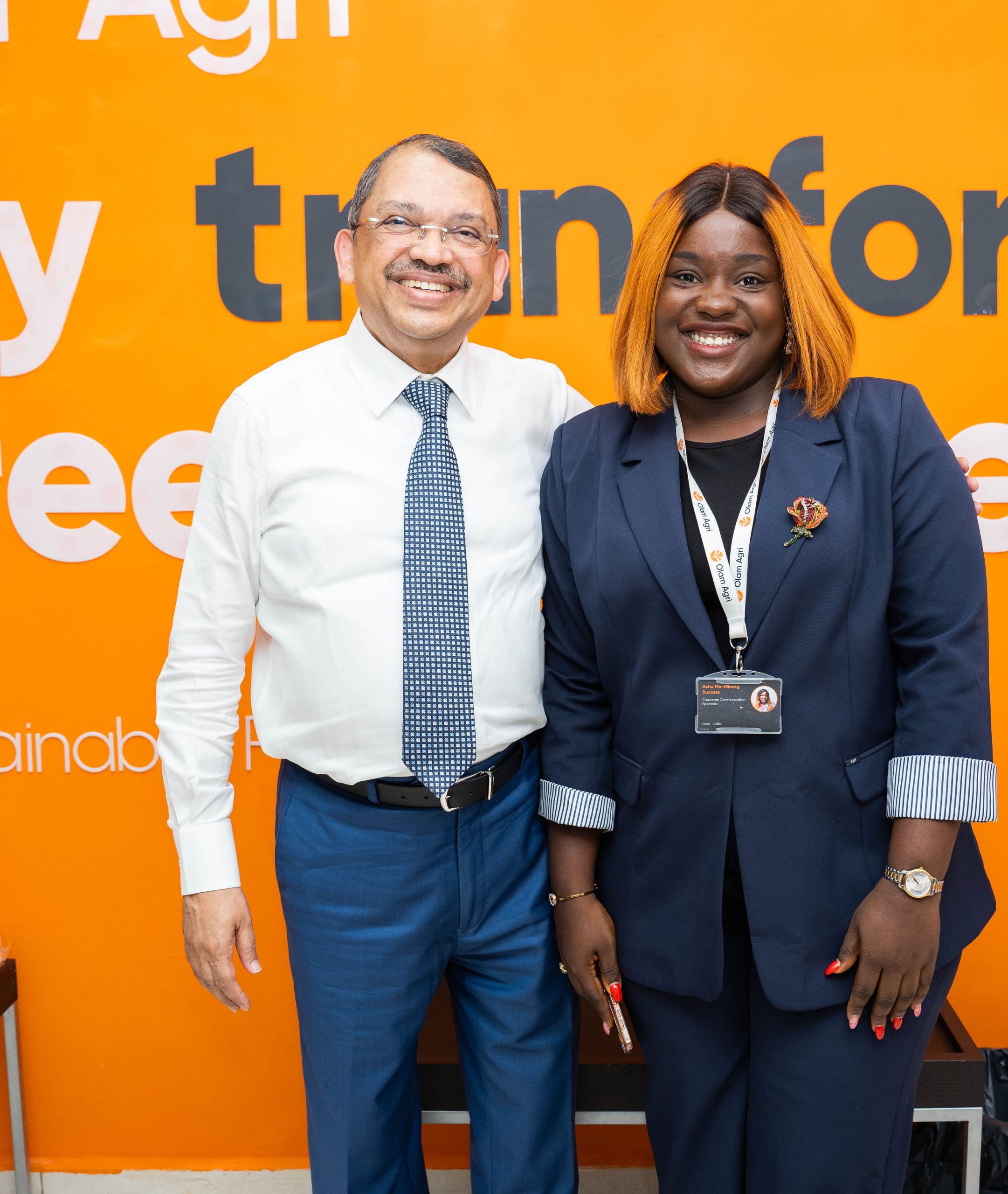
Tell us about some of the mentors who have played a key role in your career journey.
Mentorship has been one of the most defining elements of my Communications journey. I’ve been fortunate to learn from individuals whose influence has shaped not only my professional path but also my mindset, values, and aspirations.
One of the earliest and most transformative mentors was Adeline Sede Kamga, CEO of FabAfriq Media Group. Meeting her marked my transition from education into the world of corporate communications. Adeline didn’t just open a door; she handed me the keys to a new world. Her boldness, creativity, and unwavering belief in African excellence taught me that communications is a powerful tool for influence and impact. She helped me understand that storytelling, when done with authenticity and purpose, can drive real change.
When I joined Olam Agri, I was guided by Naa Dzama, a colleague whose mentorship was both practical and empowering. Naa helped me navigate the complexities of a global organization, showing me the ropes and encouraging me to think strategically. Our discussions often rich with debate and insight sharpened my approach to campaign planning, stakeholder engagement, and internal communications. Her support was instrumental in helping me find my voice within a large, dynamic corporate environment.
On a broader professional level, Gwendoline Abunaw, Managing Director of Ecobank Cameroon, has been a role model whose leadership continues to inspire me. Her achievements as a woman in finance and corporate leadership have shown me what’s possible when ambition meets excellence. She embodies grace, resilience, and strategic vision qualities I strive to emulate in my own leadership journey.
And most recently, I’ve had the privilege of learning under Mel Powell, PR Professional and my instructor at the Chartered Institute of Public Relations (CIPR). Mel’s mentorship has been intellectually enriching and deeply affirming. She has challenged me to think beyond tactical and embrace the strategic dimensions of communication. Her emphasis on ethics, influence, and professional rigor has elevated my understanding of discipline and encouraged me to see communication not just as a career, but as a craft.
Each of these mentors has played a unique role in shaping my journey. They’ve taught me that leadership in communications is not just about delivering messages, it’s about building trust, shaping narratives, and empowering others to find their voice. And for that, I am deeply grateful.
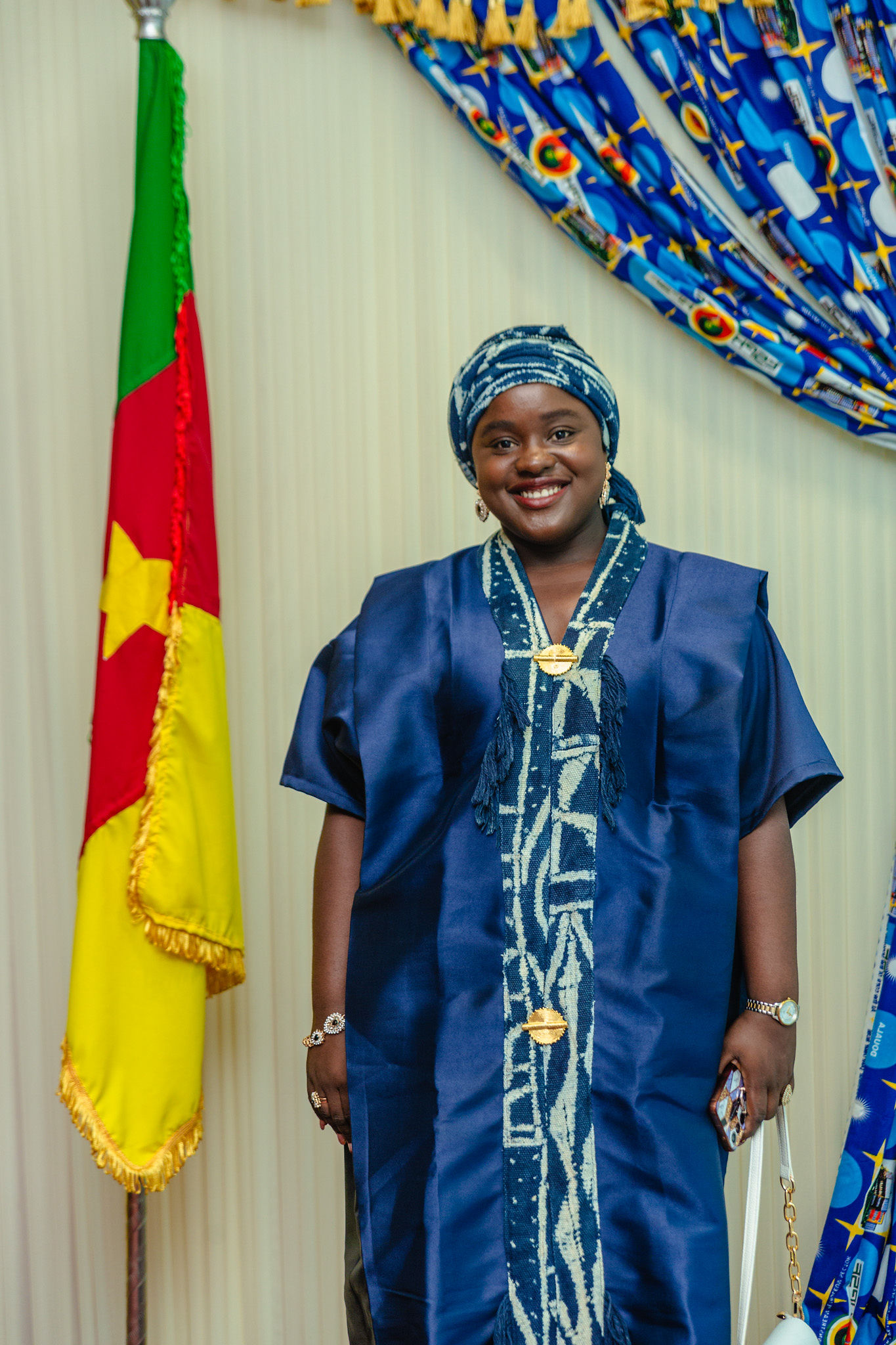
Can you share a career win that means a lot to you?
There have been several defining moments in my communications career, but a few stand out as particularly meaningful both in terms of personal growth and organisational impact.
One of the most significant wins has been leading the communications strategy that contributed to Olam Agri Cameroon being certified as a Top Employer not once, but twice. This was a first in the history of our operations in Cameroon. Prior to my joining, this recognition had never been achieved. It became a reality through a close and strategic partnership with our new HR leadership.
Together, we aligned internal communications with our people agenda, built a strong employer brand narrative, and created platforms that amplified employee voices and engagement. It was a proud moment to see our efforts validated on a global stage, and even more rewarding to know that we helped position Cameroon as a benchmark within the group.
Another major milestone was the 30th Anniversary of Olam Agri in Cameroon; a project I had the privilege to lead from concept to execution. This wasn’t just a celebration; it was a moment of national and organisational pride. We hosted our Group COO, senior executives, government officials, and key stakeholders in a series of high-impact events that showcased our legacy, our people, and our future ambitions. It was multi-dimensional spanning media relations, internal storytelling, stakeholder engagement, and brand visibility. The feedback was overwhelmingly positive, and it reinforced the power of communications to shape perception and build trust.
Perhaps the most personally affirming moment was the visit of Sunny Verghese, our Group CEO and Co-Founder, to Cameroon in 2024 is first in many years. It was a historic moment for the business, and for me, a deeply humbling one. During his visit, he took the time to acknowledge the quality and consistency of our communications work in Cameroon. His words of encouragement and recognition were not only validating but also a reminder of the strategic value that communication brings to business at the highest levels.
These wins are not just about accolades or events, they represent the culmination of vision, collaboration, and a deep belief in the power of storytelling to drive culture, reputation, and impact. They remind me why I do what I do and why communications, when done with purpose, can be truly transformative.
What advice would you give to someone looking to build a long-term career in this field?
First and foremost, understand that communication is not just about writing press releases or managing social media about building trust, shaping narratives, and influencing perception. If you want to build a long-term career in this field, you must approach it with both strategic intent and emotional intelligence.
Start by mastering the fundamentals writing, storytelling, audience analysis, and media relations. But don’t stop there. The most successful communicators are those who understand the business. Learn how your organization operates, what drives its growth, and how communications can support its goals. When you can speak the language of both the boardroom and the newsroom, you become indispensable.
Second, stay curious and adaptable. The communications landscape is constantly evolving new platforms, new technologies, new expectations. Invest in continuous learning. Take courses, attend webinars, read widely, and stay ahead of trends. Certifications like those from CIPR or IABC can also add credibility and sharpen your strategic thinking.
Third, build relationships. Communications is a people-centered profession. Your ability to influence, collaborate, and lead often depends on the strength of your internal and external networks. Find mentors, seek feedback, and surround yourself with people who challenge and inspire you.
And finally, lead with authenticity and purpose. The best communicators are those who bring their full selves to work who communicate with empathy, integrity, and clarity. Don’t be afraid to bring your voice, your values, and your vision to the table. That’s where real impact begins.
A career in communications is not always linear, but it is deeply rewarding. If you’re passionate about connecting people, shaping stories, and driving change, then this field will not only welcome you, but it will also stretch you, grow you, and empower you to lead.

